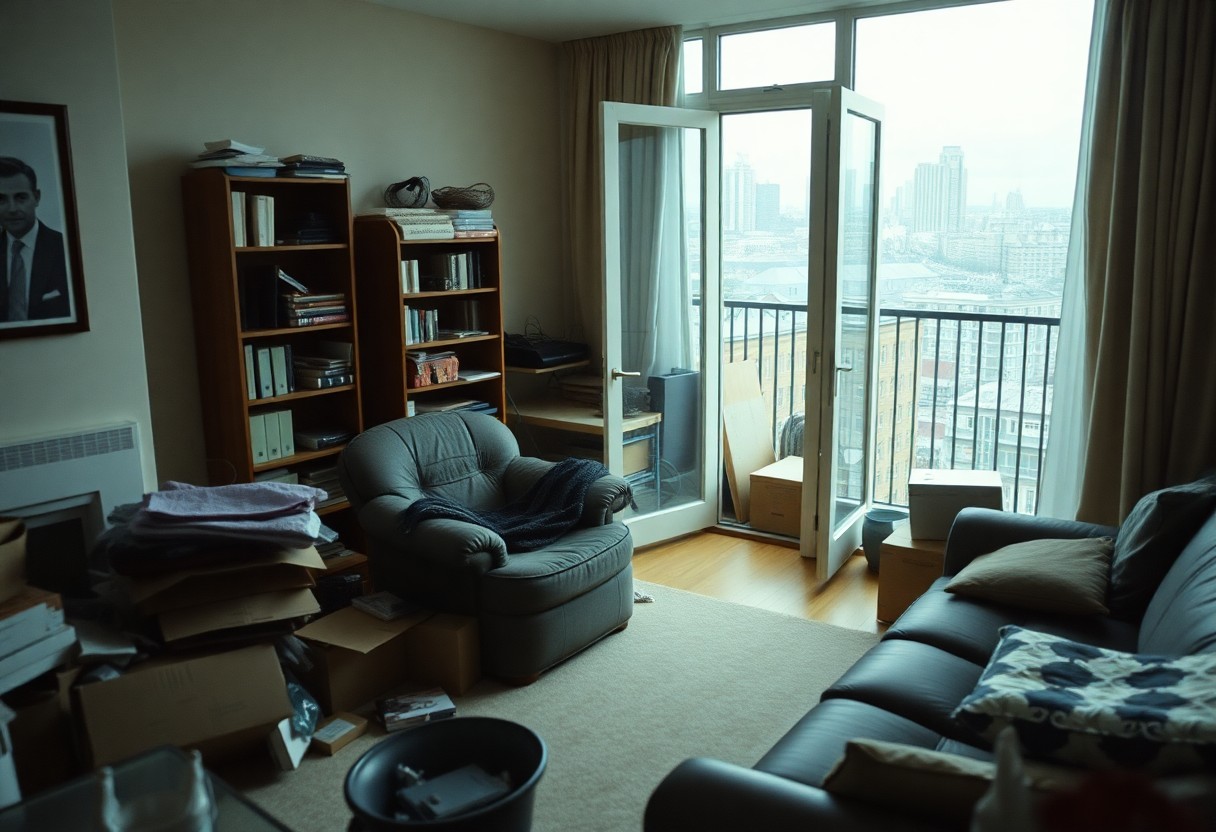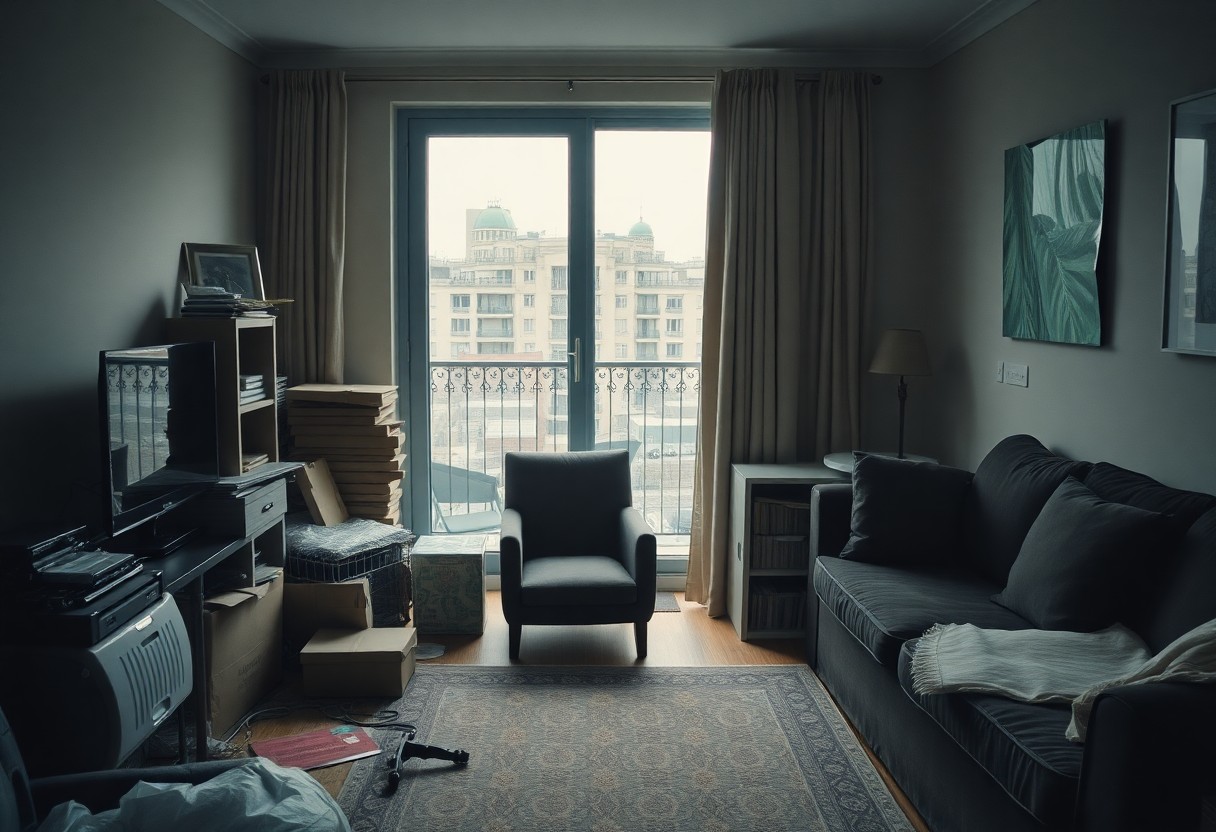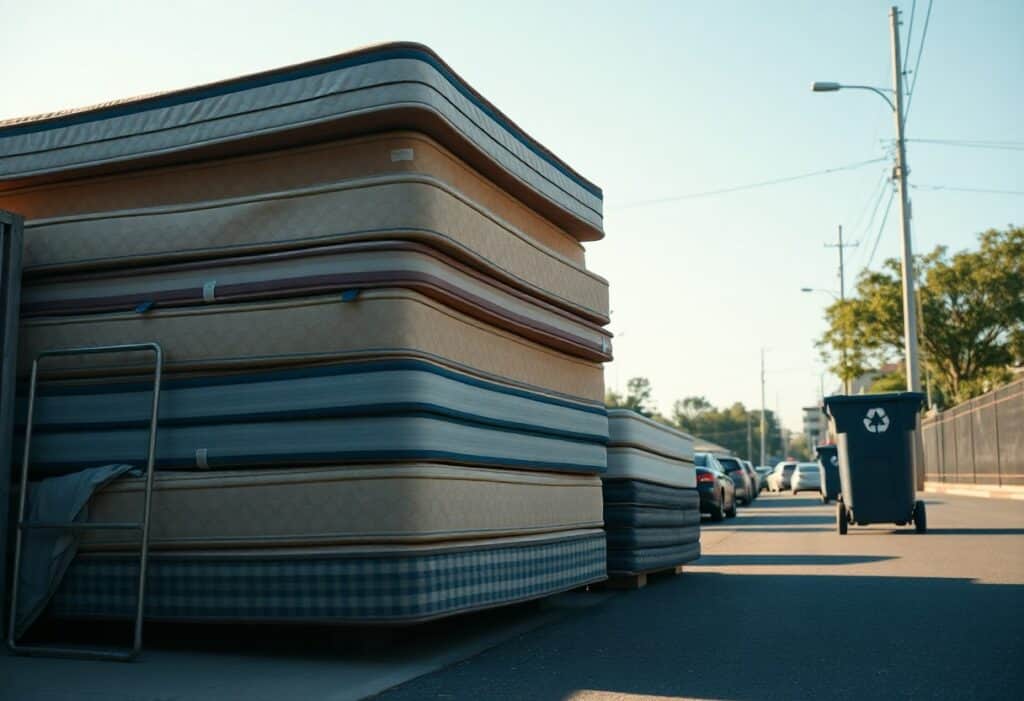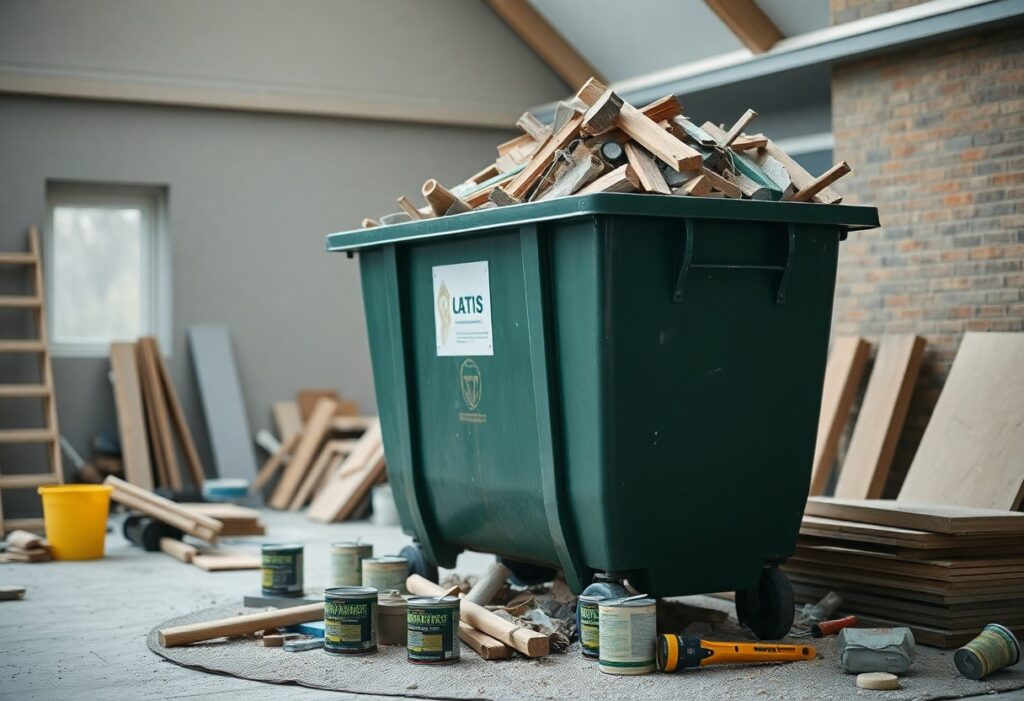Bulky waste can be a real challenge for residents of small London flats, often leading to clutter and frustration. It’s necessary that you take the right steps to effectively manage these items without compromising your living space. Start by identifying what constitutes bulky waste, including furniture and appliances, and explore your options for disposal. You can utilise local council services for collections or consider donating usable items. With the right approach, you can keep your flat tidy and ensure your bulky waste is handled responsibly.
Understanding Bulky Waste in Small London Flats
Your flat might feel compact, but when it comes to bulky waste, it can quickly become overwhelmed. In London, where space is at a premium, managing larger items like furniture or appliances poses unique challenges. Understanding what constitutes bulky waste and how to deal with it efficiently ensures your living space remains organised and clutter-free.
Definition of Bulky Waste
One of the key aspects of handling bulky waste is knowing how to define it. Bulky waste refers to large unwanted items that do not fit in ordinary waste containers. This often includes furniture, mattresses, and large appliances that require special arrangements for disposal.
Common Types of Bulky Waste
Small London flats often accumulate various forms of bulky waste that can be difficult to manage. The following list highlights some common types:
- Furniture: sofas, chairs, tables
- Appliances: fridges, washing machines, microwaves
- Mattresses: beds and other large bedding items
- Computers: desktop units, monitors, printers
- Garden waste: tools, furniture, and plant pots
Recognising these common types can help you identify the items that need special attention when it comes to disposal.
| Type | Description |
| Furniture | Large items including sofas and wardrobes |
| Appliances | Refrigerators, ovens that require special disposal |
| Mattresses | Old beds that cannot be put in usual bins |
| Electronics | Computers, TVs that need recycling |
| Garden waste | Tools and furniture from outdoor spaces |
Understanding the types of bulky waste prevalent in your flat can streamline your waste management process and ensure that proper disposal methods are followed.
How to Assess Your Bulky Waste Needs
There’s no denying that dealing with bulky waste in a small London flat can be a challenge. To effectively manage this process, you need to thoroughly assess what your specific bulky waste needs are. This involves taking stock of the items taking up valuable space within your flat and considering how they can be disposed of responsibly, ensuring both convenience and adherence to local regulations.
Evaluating Your Space
To begin, take a moment to evaluate your living area and identify any corners or storage spaces that may be housing unwanted or unused items. Measure the available space to help you determine how much bulky waste you can realistically handle at one time, and consider potential alternatives for better space utilisation.
Identifying Items for Disposal
Even if it seems straightforward, identifying items for disposal often requires a critical eye. It can be helpful to categorise your belongings to make the process more manageable, focusing on items that are particularly difficult to dispose of due to their size or weight.
For instance, consider large furniture pieces like sofas or mattresses that might be taking up unnecessary space in your flat. Evaluate their condition—if they are damaged beyond repair, it may be time to dispose of them. Also, keep an eye out for appliances that no longer function well, as these can be both heavy and cumbersome to remove. Always check with your local waste collection guidelines, as certain items may require special handling or disposal fees, ensuring you comply with regulations while keeping your living space tidy.
Tips for Efficiently Managing Bulky Waste
While managing bulky waste in your small London flat can be challenging, there are strategies you can employ for effective disposal:
- Schedule regular collections for larger items.
- Keep a list of local charities that accept donations.
- Use community platforms for item exchanges.
- Know the local recycling services available for different materials.
After following these tips, you’ll find managing bulky waste much simpler.
Recycling Options Available
An excellent way to minimise your environmental impact is by exploring local recycling options. Many boroughs in London provide specialised collections for bulky items, including large electrical appliances or furniture. Be sure to check with your local council for specific services and guidelines.
Donation and Reuse Strategies
Managing bulky waste effectively can also involve donating usable items, providing them a second life.
Waste that is in good condition can often be donated instead of simply being thrown away. Numerous local charities and organisations will gladly accept furniture, appliances, and clothing. Not only does this benefit those in need, but it also helps in reducing the amount of waste sent to landfills. Be mindful of safety when donating items; ensure they are clean and functional. Many organisations even offer free collection services, making it easier than ever for you to contribute positively to your community.

Factors to Consider Before Disposal
Unlike traditional waste, disposing of bulky waste in small London flats requires careful planning. You need to consider the following factors:
- Size and weight of the item
- Availability of space in your flat
- Potential damage to your property
- Disposal costs
- Local regulations
After assessing these elements, you can make informed decisions about your disposal options.
Local Regulations
Disposal of bulky items in London is governed by local regulations that can vary by borough. It’s necessary to consult your local council’s guidelines regarding collection services and permissible disposal methods to avoid fines and ensure responsible disposal.
Environmental Impact
Disposal of bulky waste can significantly affect the environment if not managed correctly. Consider how your disposal methods might lead to increased landfill waste or hinder recycling efforts.
Plus, ensuring that your bulky waste is disposed of responsibly can lead to positive outcomes for the environment. Proper recycling of items like furniture and appliances prevents them from contributing to landfill overflow, which can release harmful substances into the ecosystem. By opting for a responsible disposal method, you play a vital role in reducing waste and promoting sustainability within your community.

How to Schedule Bulky Waste Collection
Keep your space clutter-free by scheduling bulky waste collection in a timely manner. You can find valuable information about this process in The Ultimate Guide to Bulky Waste Collection. It’s important to plan ahead to ensure that your items are disposed of properly and efficiently, giving you peace of mind and a tidy flat.
Contacting Local Authorities
Authorities in your area will provide specific guidelines on how to arrange for bulky waste collection. You should visit your local council’s website or give them a call to understand the procedures and requirements. They often have dedicated waste management teams that can assist you with the necessary arrangements.
Understanding Collection Days and Fees
An vital aspect of scheduling your bulky waste collection is to understand the designated collection days and any associated fees. Each local council will have different days for collection and varying costs, so be sure to check this information to avoid any surprises.
Schedule your bulky waste collection on the designated days set by your local council to ensure timely pick-up. It’s advisable to check if there are any additional charges for larger items or specific materials, as these can affect your overall disposal costs. Being well-informed will help you keep your flat tidy without incurring unnecessary expenses.
Alternative Solutions for Bulky Waste
For effective management of bulky waste in your flat, consider utilising resources like the Toolkit for the Flats Recycling Package. This toolkit offers practical advice and solutions tailored to residents in small spaces. Incorporating these strategies can help you reduce waste and streamline your disposal process, ensuring a cleaner and more organised living environment.
Hire a Waste Removal Service
Some residents opt to hire a waste removal service, which can simplify disposing of bulky items. These services typically provide prompt collection and disposal, allowing you to avoid the hassle of managing heavy objects yourself. Make sure to choose a reputable company that adheres to proper waste disposal regulations, ensuring your items are disposed of correctly and ethically.
DIY Disposal Methods
On the other hand, if you prefer a hands-on approach, DIY disposal methods can be effective for removing unwanted bulky waste. You may choose to break down items for easier disposal or arrange for pickups from local charities or recycling centres.
Waste disposal through DIY methods can be both economical and eco-friendly. You can salvage parts from your bulky items, contributing to a more sustainable environment. While this method allows for flexibility, always prioritise safety by wearing protective gear and ensuring you’re disposing of items correctly, as hazardous waste can pose serious risks. Engaging with local services for disposal, recycling opportunities, or drop-off points helps minimise your carbon footprint, aligning with the best practices for managing bulk waste in small London flats.
Summing up
The management of bulky waste in your small London flat can be simplified by utilising local council services, finding suitable charities for donations, and exploring private disposal options. Consider breaking down larger items to maximise space and efficiency during disposal. You should also stay informed about scheduled bulky waste collections in your area and maintain an organised approach to prevent accumulation. This way, you can maintain a tidy living environment while adhering to waste disposal regulations.
FAQ
Q: What is considered bulky waste in a small London flat?
A: Bulky waste refers to large items that are difficult to dispose of through regular waste collection services. This includes furniture like sofas and mattresses, appliances such as fridges and washing machines, and other oversized items. Due to space constraints in small flats, disposing of these items may require special consideration.
Q: How can I dispose of bulky waste in my small flat?
A: There are several options for disposing of bulky waste in a small flat. You can contact your local council to arrange for a bulky waste collection service, which often comes at a fee. Additionally, you might consider donating usable items to charity, or using online marketplaces to sell or give away unwanted furniture. Local recycling centres may also accept larger items, depending on their type and condition.
Q: Are there any penalties for improper disposal of bulky waste in London?
A: Yes, improper disposal of bulky waste, such as leaving items on the street or in communal areas, can result in penalties from the local council. Fines may be issued for littering and illegal dumping, urging residents to follow proper disposal methods to avoid such consequences.
Q: How do I prepare bulky waste for collection?
A: To prepare bulky waste for collection, ensure that items are clean and dry, and if possible, dismantle larger pieces for easier handling. Check your local council’s guidelines for specific instructions, including whether items need to be placed in a designated area or if they will be collected directly from your flat.
Q: What alternative methods exist for disposing of bulky waste if council services are unavailable?
A: If council services for bulky waste disposal are not available, consider alternative methods such as hiring a waste clearance company that specialises in bulky item removal. Some residents also opt for skip hire, where a skip is placed outside their property for a specified time to collect waste. Additionally, community clean-up events may provide opportunities for responsible disposal.



